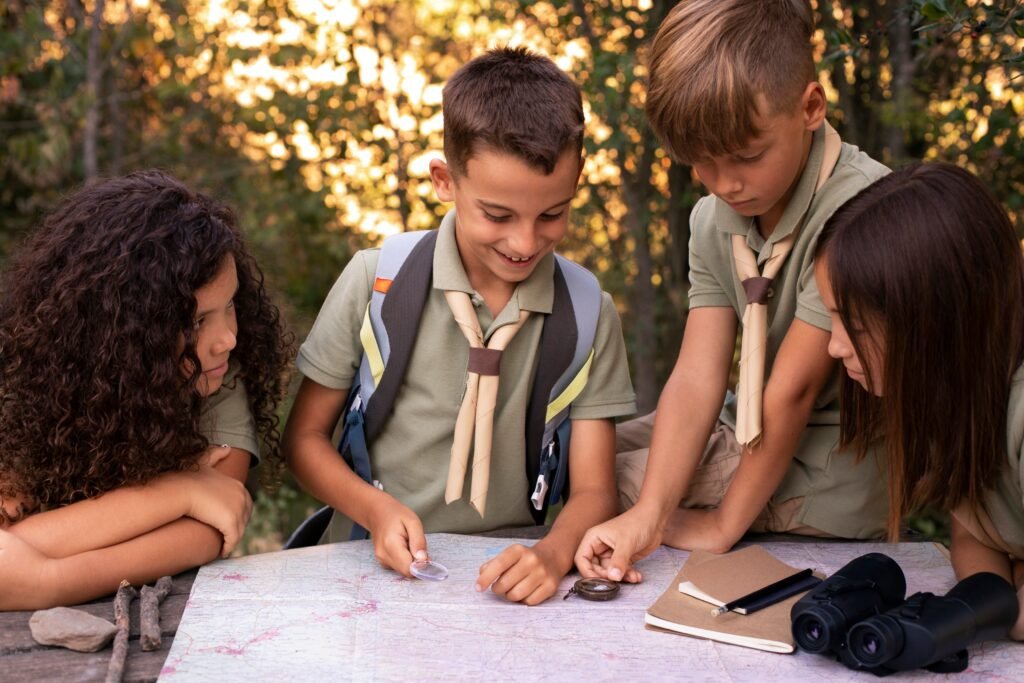Outdoor education is privileged to have New Zealand with its wide variety of landscapes, high mountains, clear beaches, and leafy forests in its classrooms. Complementing this environmental commitment is the country’s strong indigenous Māori connection to the land (known as Te Ao Māori) which creates an environment where students can take learning beyond the classroom, weaving bicultural concepts into their worldview from wherever they stand.
In New Zealand, outdoor education is not just about doing some adventure activities it is about helping students to grow as people; helping them work together better with other people and the surrounding environment, and develop as potential leaders. If you’re looking for assistance with understanding these concepts or need help with related assignments, you might consider looking for services where you can ask someone to write my assignment for me.
In this post, we look at what outdoor education is, its roots and place in New Zealand, and its benefits for all ages of active learning.
What is Outdoor Education?
It is referred to as education where learning occurs outdoors in natural settings. These include the teaching of life skills, leadership, and environmental awareness frameworks which are adapted to exploit outdoor activities such as hiking, camping, kayaking, orienteering, and bushcraft.
If you’re working on assignments related to this topic or need assistance with data analysis in outdoor education research, you might benefit from statistics homework help. CCE goes beyond traditional classroom environments and focuses on getting students hands-on experience by bringing them close to nature for learning.
Outdoor Education NZ: The Beginning
Outdoor education programs have a long history in New Zealand, and ideas such as the idea humans are of a nature as opposed to outside it (a Māori worldview) have significantly impacted these.
In New Zealand, the modern outdoor education movement arose in the mid-20th century, as educators recognized that children also require resilience, teamwork, and an appreciation for our natural resources. In the end, outdoor education became formalized in the national curriculum, with most schools and institutions offering outdoor specialized programs.
Advantages of Outdoor Education
The benefits of learning outside in New Zealand are as follows:
Self-Realization & Development Personal Growth
For a great deal of personal growth, outdoor education is critical. Through taking part in outdoor challenges, students experience being beyond their comfort zones, learning how to overcome personal fears,, and gaining self-confidence, and decision-making ability. The unpredictability of weather and terrain in outdoor settings fosters true grit- it is missing a chance!?
Teamwork and Collaboration
The sense of togetherness is really hard to replicate in any situation other than outdoor challenge. Students can work together, communicate effectively, and support one another in tasks like group hiking expeditions or survival skills training—these help in enhancing trust, leadership, and teamwork skills which are the basics of academic fields.
Caring for the Environment
Another of New Zealand’s outdoor education objectives is to foster environmental appreciation. In the conservation projects, students can participate in projects that explain the effects of human beings on the environment and natural habitat of animals. This hands-on experience gives them a sense of environmental stewardship and teaches students to care for the earth their whole lives.
Physical and Mental Wellbeing
Field trips and outdoor education are rooted in physical activity which can make students very fit, but also it is good for their health. Such workouts assist in developing muscular strength, stamina, and balance as hiking, kayaking or rock climbing is an all rounded full body exercise. Further, the research shows that time spent in nature aids in alleviating several mental health disorders such as stress, anxiety, and depression.
Academic Enhancement
Firstly, the benefits of outdoor education are not limit to physical and personal development but supplement academic learning as well. By linking classroom theory to real-life experiences, children learn concepts around geography, biology, and environmental science in a different way than sitting in a classroom. Classroom lessons about ecosystems are great, but seeing native animals in their natural environment has a more profound impact on the students.
School-Based Programs
Starting in primary school and continuing through to secondary levels, students engage in a series of activities that help teach outdoor skills, teamwork, and environmental stewardship. Frequent activities include tramping (hiking), kayaking, camps, day outings, and outdoor trips, with the aim of physical development.
Outdoor Education Providers
It also has the specific New Zealand’s outdoor education services which are now offering their services and they include Outward Bound and Hillary Outdoors. In each of the two groups, this program provides a structured way of approaching programming in terms of leadership, personal development, and environmental education for the youth and adults.
Outdoor Education in New Zealand:
Sustainable Practices
With the evolution of outdoor education, more focus is given to sustainability and impacting nature last as minimally as possible. More and more programs are teaching students how to practice Leave No Trace principles, reduce waste, and make green decisions using waterproof repurposed materials.
Improved access to Outdoor Education
Although outdoor education is a big thing for many New Zealand schools, therefore, there is certainly more to be done in terms of accessibility. Outdoor Education for all challenges remains because providing every student with access to outdoor activities in education is essential. June 1, 2015, Exercise can make your brain fit, meanwhile, bad news from the front lines of Alzheimer’s research: prescription drugs have proven completely ineffective at treating symptoms of most types of dementia. This could look like money earmarked for outdoor programs, in addition to providing transportation to outdoor sites, as well as establishing school and organization partnerships around the delivery of outdoor learning.
Conclusion
Outdoor education in New Zealand is more than just physical adventure, it is a holistic way of learning that combines personal development, group work, environmental protection, and respect for cultural differences. New Zealand is a country with exceptional landscapes and centuries of rich indigenous heritage so by doing their part through outreach to industries but at the same time working as servers/bartenders, young people also get dynamic life experience plus stay more closely tied with the environment carrying a long historical spirit.
References
BAW. 2022. Effective Implication of AI for digital marketing. Online Available at <https://bestassignmentwriter.co.uk/blog/effective-implications-of-ai-for-digital-marketing/> [Accessed on 21 Sep 2024]
Xinmei, W., 2023. Improving Service Innovation through Big Data Analytics: A Case Study of an International Air Freight Forwarder (Doctoral dissertation, University of Canberra).




